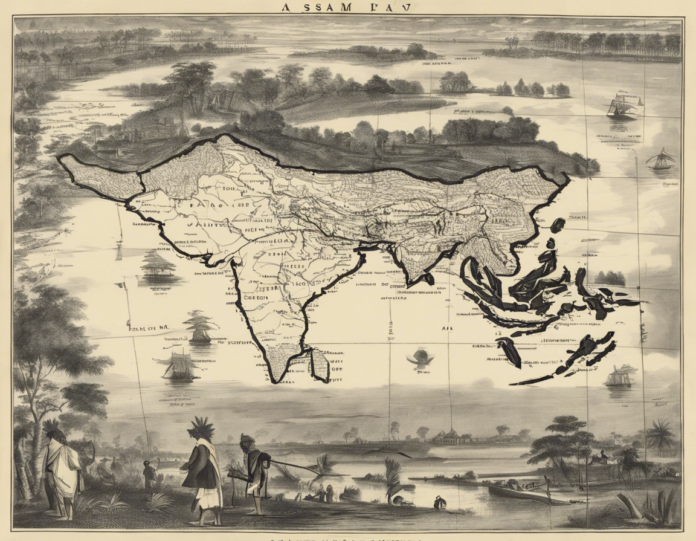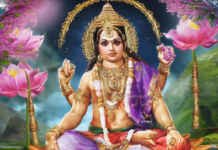The northeastern state of Assam in India is a land of mesmerizing beauty, diverse culture, and a rich historical legacy. Nestled between the mighty Brahmaputra River and the lush hills of the Eastern Himalayas, Assam has been a melting pot of various ethnicities and civilizations for centuries. In this comprehensive guide, we delve into the fascinating history of Assam, tracing its evolution from ancient times to the present day.
Early History of Assam
Assam’s history dates back to ancient times, with the region being mentioned in various Hindu scriptures and epics. The earliest recorded kingdom in Assam was the Kamarupa Kingdom, which flourished between the 4th and 12th centuries CE. The kingdom’s influence extended across present-day Assam and parts of Bangladesh and Bhutan. The Kamarupa period saw the construction of magnificent temples like the Kamakhya Temple in Guwahati, which remains a revered pilgrimage site.
Ahom Dynasty and Assam
One of the most significant chapters in Assam’s history is the rule of the Ahom Dynasty, which lasted for over 600 years. The Ahoms, who migrated from the Shan region of present-day Myanmar, established a powerful kingdom in Assam in the 13th century. Under the Ahom rulers, Assam witnessed a golden age of prosperity, cultural growth, and military might. The Ahom architecture and administration systems are notable legacies from this period.
Colonial Era and Assam Tea
The arrival of the British in Assam in the early 19th century irrevocably altered the region’s history. The British East India Company’s interest in Assam was primarily driven by the discovery of Assam tea, which grew abundantly in the region. The cultivation of tea plantations led to significant economic changes and the integration of Assam into the British Empire. Today, Assam remains one of the world’s largest producers of black tea.
Independence Movement in Assam
Assam played a crucial role in India’s struggle for independence from British colonial rule. The region witnessed various movements and uprisings against British domination, with prominent leaders like Gopinath Bordoloi, Tarun Ram Phukan, and Kanaklata Barua leading the resistance. Assam’s participation in the freedom struggle paved the way for the state’s eventual integration into independent India in 1947.
Assam Today: Culture and Heritage
Assam’s vibrant culture is a tapestry woven from numerous ethnic groups, each contributing its unique traditions, languages, and festivals to the state’s cultural mosaic. The Bihu festival, celebrated with gusto across Assam, is a colorful expression of the state’s agrarian roots and cultural vibrancy. Assam’s handloom and handicraft traditions, such as the intricate Assamese silk weaving, continue to thrive and enchant visitors.
Ecological Diversity of Assam
Apart from its historical and cultural richness, Assam boasts an incredible ecological diversity that sets it apart. The lush Kaziranga National Park, a UNESCO World Heritage Site, is home to the endangered one-horned rhinoceros and is a testament to Assam’s commitment to wildlife conservation. The Majuli River Island, the largest river island in the world, is another ecological gem that showcases Assam’s natural beauty.
Tourist Destinations in Assam
Assam is dotted with several tourist destinations that offer a glimpse into its history and natural splendor. From the historical town of Sivasagar, with its ancient temples and monuments, to the serene Dibru-Saikhowa National Park, a paradise for birdwatchers, Assam provides a diverse range of experiences for travelers. The Kamakhya Temple in Guwahati and the Manas National Park, a UNESCO World Heritage Site, are must-visit attractions in Assam.
Cuisine of Assam
Assamese cuisine is a delightful fusion of flavors, characterized by the use of fresh herbs, indigenous ingredients, and minimal spices. Staples like rice and fish form the backbone of Assamese meals, accompanied by a variety of vegetable curries, pithas (rice cakes), and tenga (sour) preparations. Aloo pitika (mashed potatoes with mustard oil) and masor tenga (sour fish curry) are classic Assamese dishes that showcase the region’s culinary delights.
FAQs about Assam:
- What is the best time to visit Assam?
-
The best time to visit Assam is during the winter season, from November to March, when the weather is pleasant and ideal for sightseeing.
-
What are some unique souvenirs to buy in Assam?
-
Assam is known for its exquisite handloom products like Assamese silk sarees and traditional gamochas (scarves), which make excellent souvenirs.
-
Is it safe to travel to Assam?
-
Assam is generally safe for travelers, but it’s advisable to stay informed about any local developments and to follow basic safety precautions.
-
What are the major languages spoken in Assam?
-
Assamese is the official language of Assam, but various indigenous languages like Bodo, Mising, and Karbi are also spoken in different regions.
-
Are there any adventure sports activities available in Assam?
- Assam offers a range of adventure sports activities like river rafting in the Brahmaputra River, trekking in the hills, and wildlife safaris in national parks.
Exploring Assam is like embarking on a journey through time, where the echoes of the past resonate in the vibrant present. From ancient temples to tea estates, from dense forests to bustling cities, Assam captivates visitors with its myriad offerings. Download our PDF guide to Assam and uncover the secrets of this enchanting land waiting to be explored.









